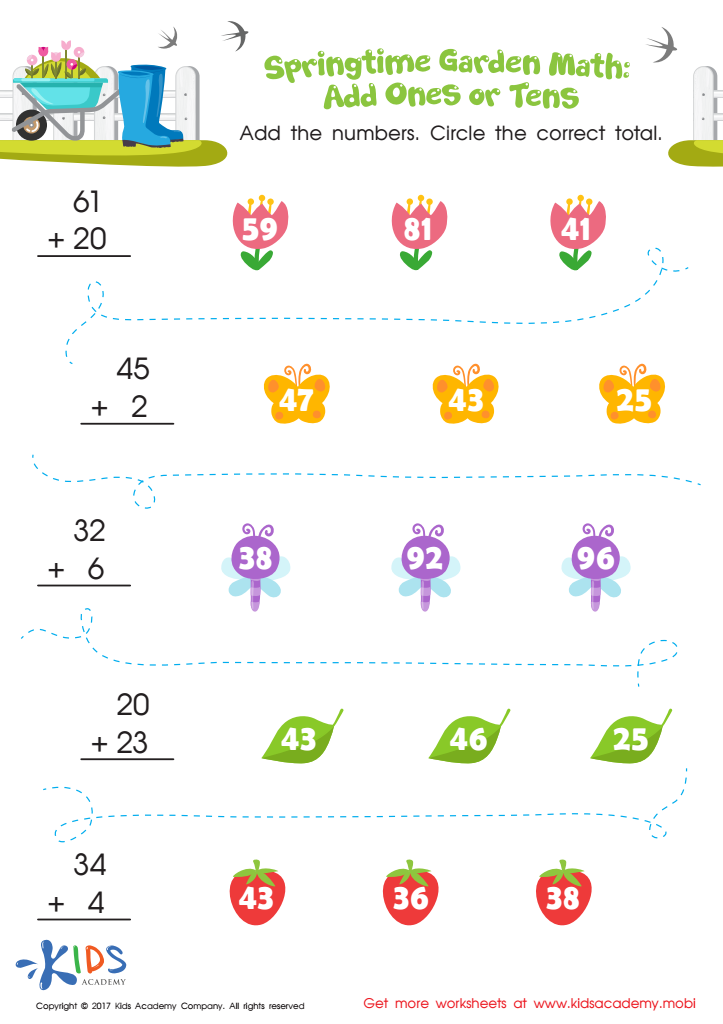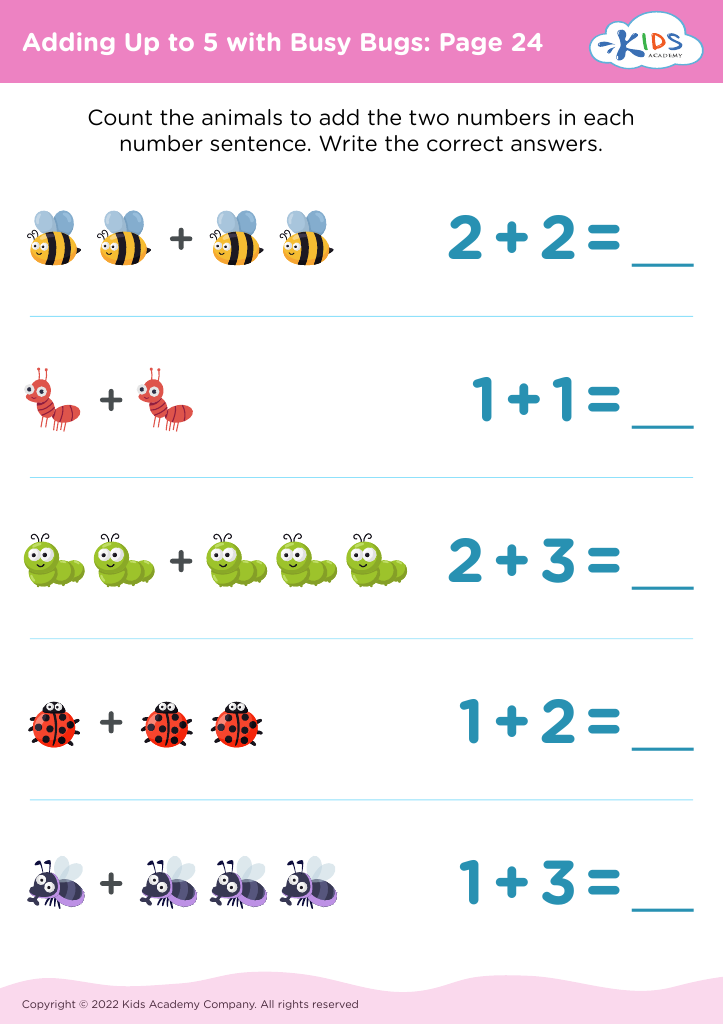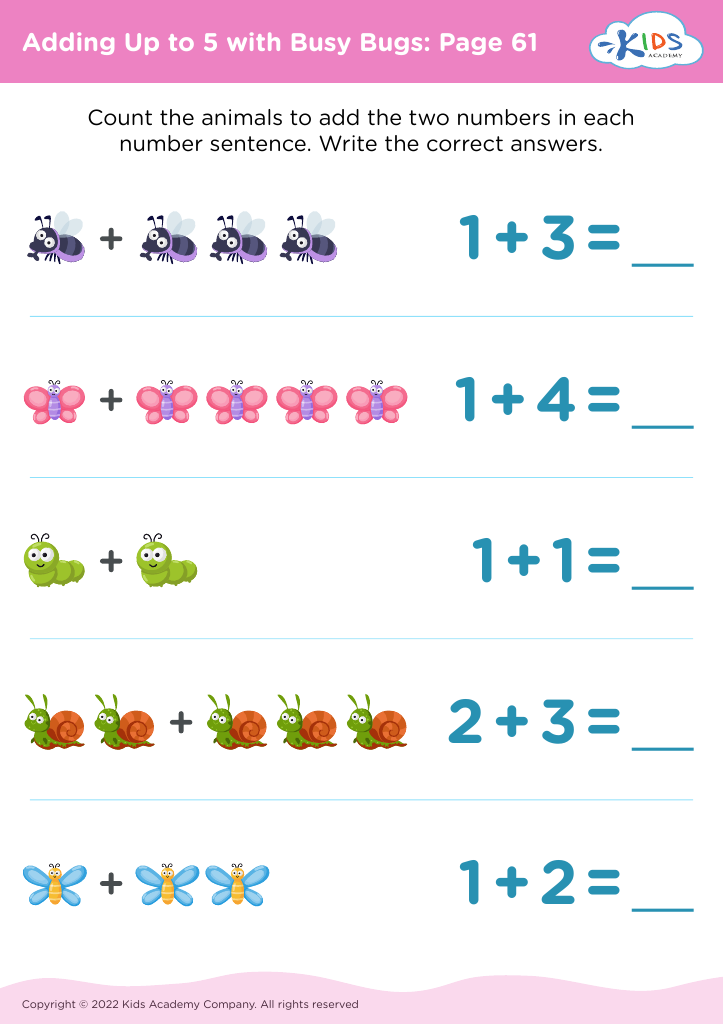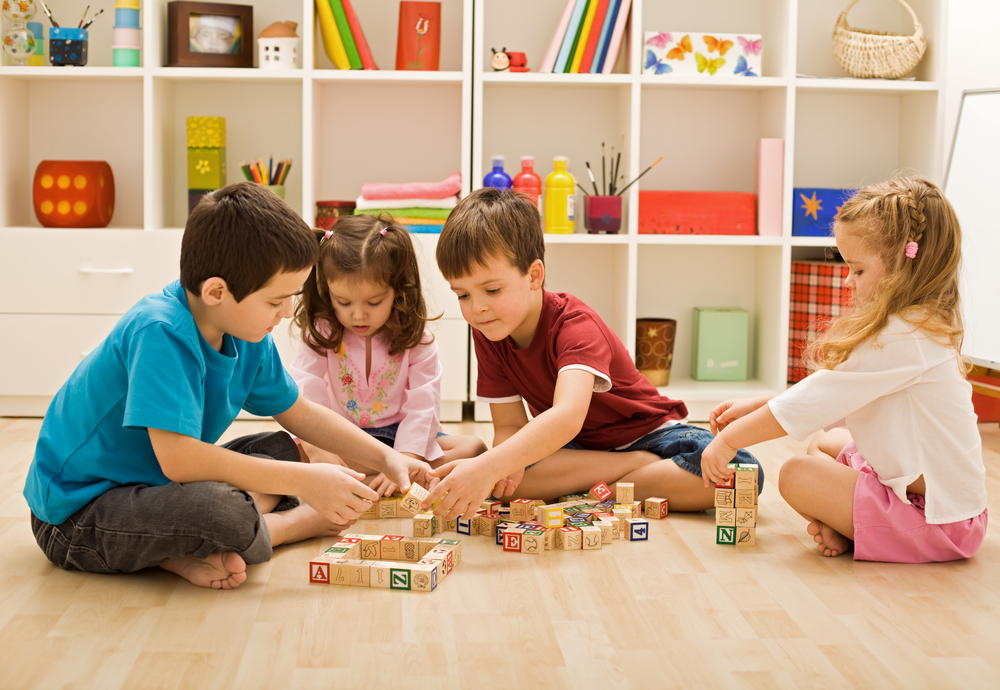Visualization skills Worksheets for Ages 3-4
3 filtered results
-
From - To
Enhance your child's learning with our Visualization Skills Worksheets designed for ages 3-4. These engaging, vibrant activities are crafted to stimulate young minds, improving their ability to visualize and interpret information through fun exercises. Each worksheet focuses on building essential skills like identifying patterns, recognizing shapes, and understanding spatial relationships. Our fun and interactive content ensures that early learners remain captivated while reinforcing critical brain development. Perfect for parents and educators aiming to develop foundational visualization skills essential for future learning success. Visit Kids Academy to explore our collection and give your child a head start in cognitive development!


Springtime Garden Math Worksheet
Parents and teachers should care about developing visualization skills in children aged 3-4 because these skills form the foundation for critical aspects of learning and cognitive development. At this young age, kids begin to interpret and understand their surroundings through images and sensory experiences. Visualization skills help them mentally process and organize this information, allowing them to better understand concepts in areas such as math, literacy, and problem-solving.
By honing visualization skills, children improve their ability to recall information, enhancing memory and understanding. For example, when they imagine the story of "The Three Little Pigs," they are using visualization skills that promote comprehension and retention of narrative details. These skills are closely tied to imagination and creativity, enabling children to think creatively and approach problems from multiple angles.
Furthermore, visualization aids in emotional regulation and empathy. When children visualize scenarios or recognize facial expressions, they can better understand their own feelings and those of others. This early emotional intelligence is crucial for social interactions, fostering cooperation and building stronger relationships with peers and adults.
Effective development of visualization skills lays the groundwork for future academic and personal success, making it essential for parents and teachers to nurture these abilities early on. This creates a strong, adaptable, and imaginative thinker prepared for the varied challenges ahead.

 Assign to My Students
Assign to My Students

















